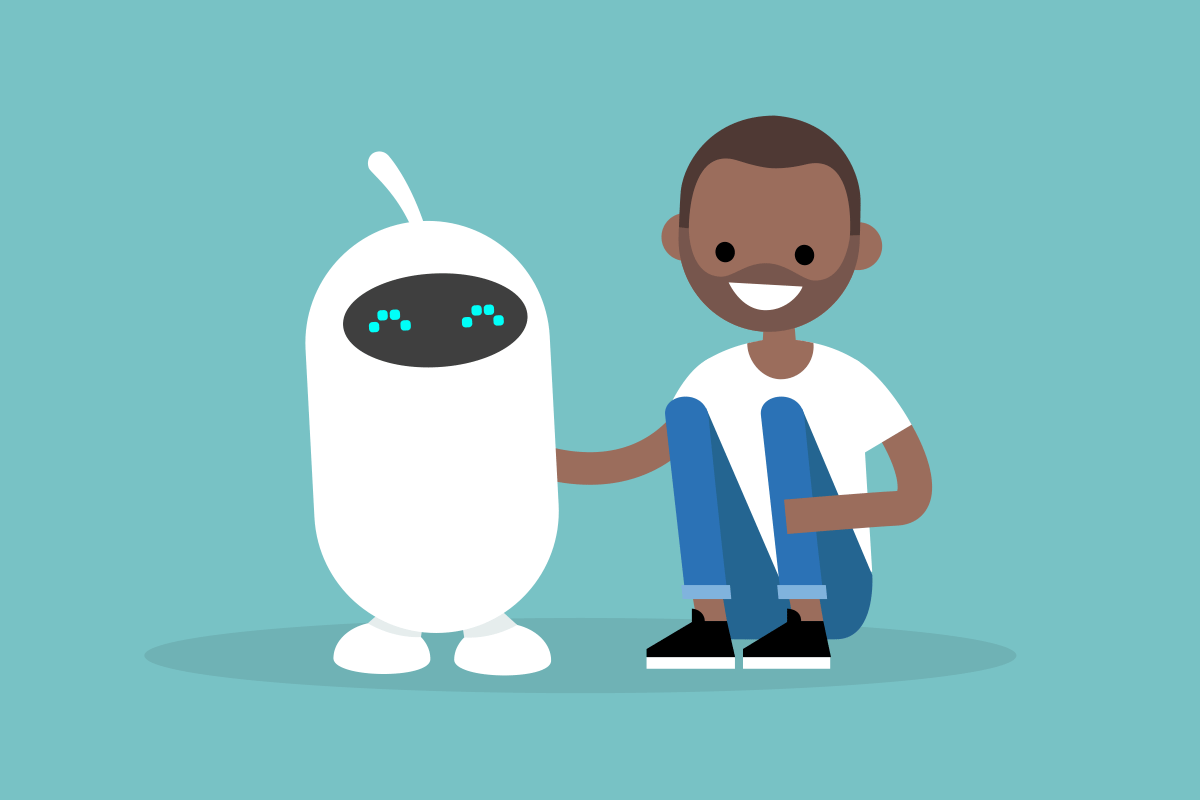
Our future with AI calls for human visionaries
AI is not an abstract future shift, but a set of practical tools here today. It is up to our human creativity to use them in ways that question established truths and move our species forward.
Many use the term ‘race’ when discussing current developments in AI. Yet a race is usually connected to a competition of speed, with contestants moving in the same direction, fighting each other towards a specific point. With AI we don’t have such a destination. There is no way of determining who gets ‘there’ first, since the product of our efforts is not a place but something as grand as the evolution of our species. To advance through this process, it is in due time we reflect on where we humans can create the most value.
A key weakness of AI is the fact that algorithms are inherently conservative. As they learn from data representing what has worked in the past, they are unlikely to pioneer in uncharted territories or celebrate emerging changes in culture. Let’s call it algorithmic shortsightedness – the inability to predict and celebrate how novel ideas, content or products perform.
The basis of their shortsightedness is that algorithms are only as good as the data they are trained on. Using insufficient, biased or faulty data about past successes to inform strategies and products for the future is thus risky business, and in recent years we have seen many examples of how it can hurt big corporates and startups alike. Radicalizing echo chambers, biased hiring tools, racist image recognition services, oppressive credit scoring tools – the list goes on and on, and the outcome often hurts those at the bottom of social hierarchies the worst.
We need visionaries
Algorithms are incredible tools for finding solutions when there is a pre-decided number of alternatives, regardless of their number. By definition they cannot think outside of the box(es) they are given. Luckily, humans are skilled at doing just that! Our ability to question established truths has been integral as our species has moved through time, and in this age of AI we should celebrate the skills such reflection requires.
In commercial settings, we need to update how we approach and value skills in domains like philosophy and art. To win in the age of AI, we need visionaries who are cultivated and open-minded enough to be able to view a different kind of world! Safe bets may feel appealing in times of global instability, but we have to dare imagine complete novelties to really power our businesses through AI.
It is not AI alone, but the combination of it and visionary humans that will bring the real revolution. This is similar to past waves of mechanization and industrialization; it was not the mere innovation of e.g. the automobile that altered the course of humankind, but the pairing of such a new tool with humans deciding where to take it. Let us not underestimate our opportunity to now shape AI in ways that benefit society.
Artificial Intelligence may be the future, but it doesn’t know it better than any of us humans. Let’s not leave the future for algorithmic systems alone to decide. Our historical data isn’t exciting enough for the rest of the time to depend on in.

Agnes Stenbom
Associate Product Manager in Machine Learning
Years in Schibsted
1
My dream job as a child
Editor of a newspaper